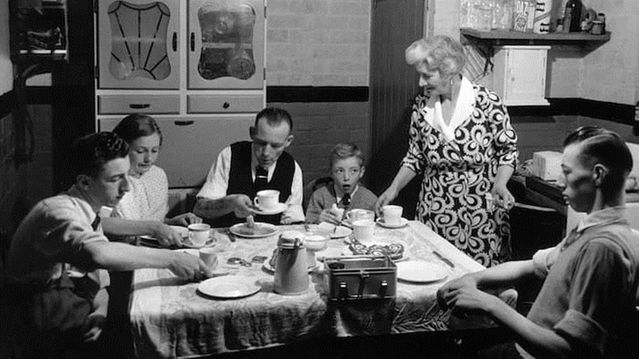
Emotion Regulation
‘Tis the Season… for Emotion Regulation
Coping with relationship stress, grief, and loneliness during the holidays
Posted November 20, 2017

By Emanuel Maidenberg, Ph.D., and Brett Marroquín, Ph.D.
Festive parties, gift-giving, cocoa by the fire: for many, the holiday season is a time for joy and relaxation. But the holidays can also trigger experiences of relationship trouble, grief, and loneliness. Psychological science shows clearly that the processes by which we notice, modify, and manage our emotions play crucial roles in whether negative (and positive) events give rise to increased distress, and even mental health problems (e.g., Gross, 2015). Strategies to help ourselves by regulating emotions can be especially useful for the most common stressors of the season.
Home for the Holidays. As adults, it is easy to slip back into old family scripts that don’t work anymore, like a youngest child suddenly feeling less like an independent 40-year-old and more like “the baby” of the family. This sense of who we are – and how we behave – is partially stored in “relational” structures in our memory that can be triggered by conscious and nonconscious reminders (Andersen & Chen, 2002). When these roles and conflicts lead to distress, an important part of emotion regulation is choosing which situations to be in, and modifying those situations to fit our emotional goals (Gross, 2015).
On this count, Marsha Linehan (1993) has developed a technique – originally for individuals with borderline personality disorder, who struggle with intense emotions and relationships – that can be helpful for everyone. The skill emphasizes clear and assertive communication:
- Describing the situation objectively (“When I come home for the holiday, you expect us to eat breakfast together, which makes it challenging to fit in my morning jog.”)
- Expressing one’s subjective feelings (“I feel angry when this happens because exercise makes me feel good and I like to control my own schedule.”)
- Asserting one’s wishes or requests (“Would you be willing to forgo eating breakfast together so that I can exercise?”)
- Providing some reward or reinforcement that motivates the other person (“That way I think I’ll be much more up for playing games in the afternoon.”)
Grief and Loss. We cannot always problem-solve our way out of an emotional situation. The holidays are infamous for unavoidable reminders of lost loved ones, all thanks to basic learning processes. Like Pavlov’s bell, stimuli that appear each holiday season can cue our most emotional memories of relationships lost to death, divorce, or distance. For some, this can be a bittersweet experience; for others, the grief can be overwhelming and impairing. Psychologists distinguish between “normal” grief and “complicated” grief, which involves inability to heal the wounds of loss. The cognitive processes that underlie relationships have to be re-organized following loss (Bonanno & Kaltman, 1999), and acknowledging that one’s emotions are real and understandable can be regulatory in itself. Research shows that validation of emotions – both by others and by oneself – can reduce emotional arousal, even physiologically (Shenk & Fruzzetti, 2011). Over time, more active coping may include commemorating the loss in some way (perhaps developing an annual tradition), practicing the ability to experience memories without ruminating on the loss, and expressing emotions with others.
Going Solo. For some of us, spending the holidays on our own is a welcome respite. For others, the season can be marked by loneliness. Once again, research recommends proactive coping. Identify particular emotions and triggers, and make plans. If you know you’ll be lonely, are there opportunities for socializing that you haven’t considered and can act on in advance? If not, what can you do by yourself that makes you feel like you’re celebrating, or getting what you need from the holiday? Another emotion regulation strategy is cognitive reappraisal, one of the more consistently helpful strategies for mental health (Gross, 2015). This involves thinking about your situation in a different way. If you celebrate Christmas, the thought “Nobody invited me over this year” likely causes sadness that day; reframing the situation with “Christmas is the perfect day to avoid crowds downtown” can reduce this feeling.
Of course the holidays are stocked with other stress – shopping, cleaning, cooking, children, deadlines, travel – and we all must regulate emotions regardless of the stressor. Emotion regulation is not about shutting down emotions, but about coping with them adaptively. In general, regulating emotions through active engagement, rather than passive avoidance, is more effective. The holiday season is a good opportunity to build up our emotion regulation muscles. Unlike most of our New Year’s resolutions, these skills remain useful well past January 2.
References:
Andersen, S.M., & Chen, S. (2002). The relational self: An interpersonal social-cognitive theory. Psychological Review, 109, 619-645.
Bonanno, G.A., & Kaltman, S. (1999). Toward an integrative perspective on bereavement. Psychological Bulletin, 125, 760-776.
Gross, J.J. (2015). Emotion regulation: Current status and future prospects. Psychological Inquiry, 26, 1-26.
Linehan, M.M. (1993). Skills training manual for treating borderline personality disorder. Guilford Press.
Shenk, C. E., & Fruzzetti, A.E. (2011). The impact of validating and invalidating responses on emotional reactivity. Journal of Social and Clinical Psychology, 30, 163-183.

